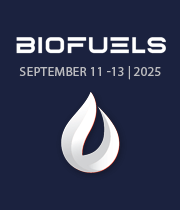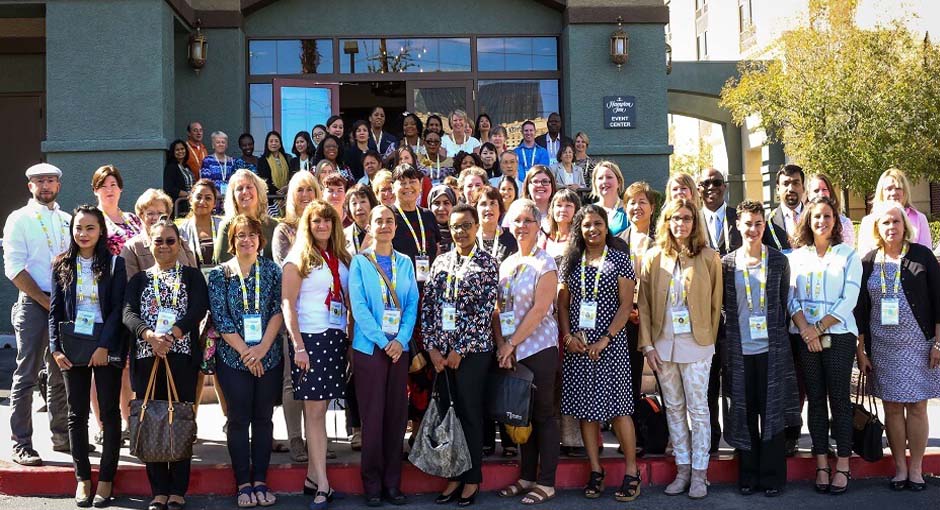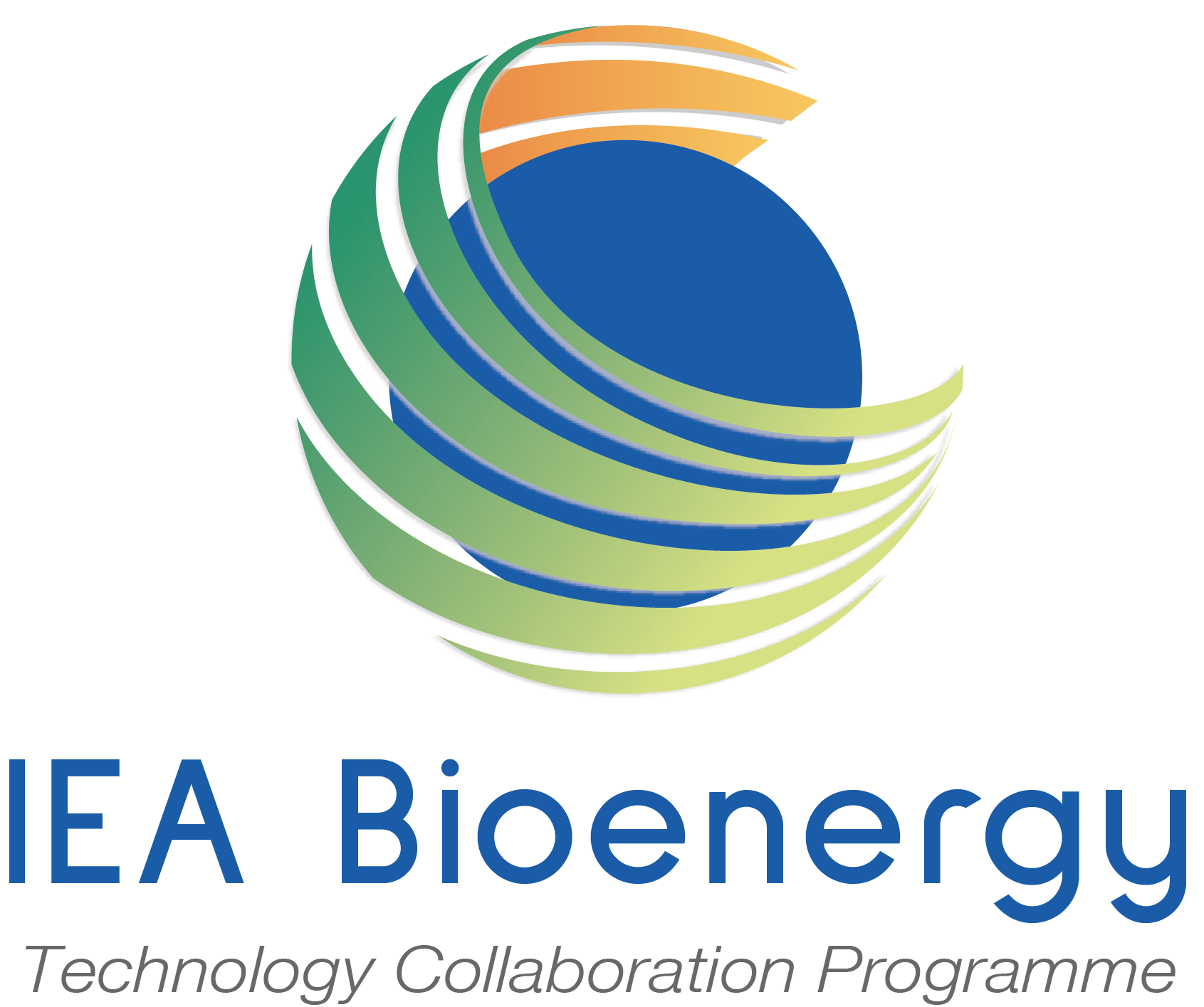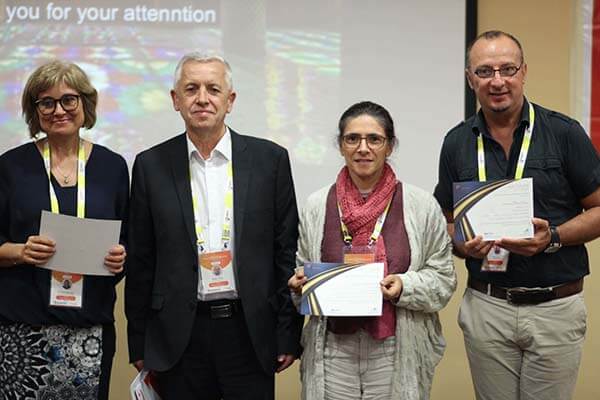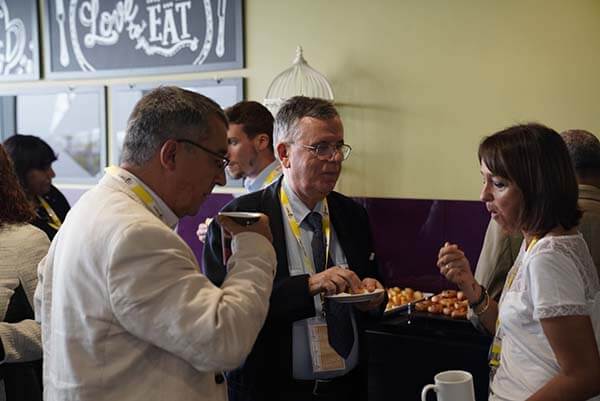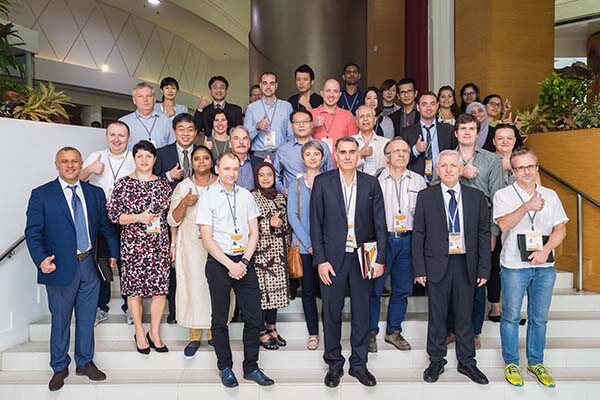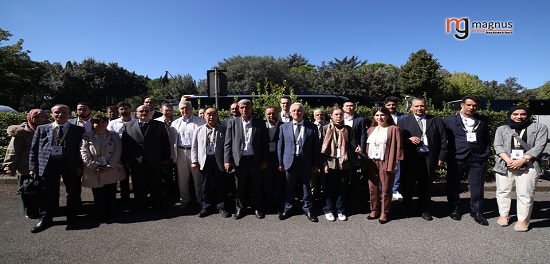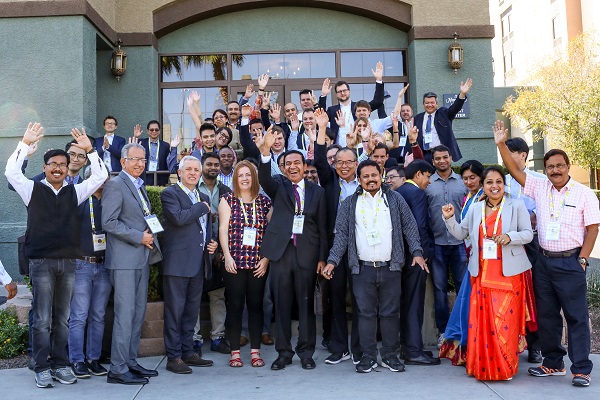About Biofuels 2025 | Hybrid Event
We welcome you to the "2nd Edition of Global Conference on Biofuels and Bioenergy", scheduled from September 11-13, 2025 in Valencia, Spain, offering a unique hybrid experience both in-person and online, ensuring global participation and collaboration with the theme "Advancing Biofuel Research: Bridging the Gap between Lab and Industry ".
Biofuels 2025 serves as a vital platform for researchers, academics, industry professionals, and policymakers to converge and exchange insights, innovations, and advancements in the realm of biofuels and bioenergy. With an extensive array of topics spanning from biorefineries to the sustainability of biofuels, our agenda encompasses the entire spectrum of this rapidly evolving field.
Attendees will delve into discussions on various generations of biofuels, exploring their production processes, applications, and environmental impacts. Furthermore, the conference will spotlight emerging trends such as biochar, bio-based chemicals, and the utilization of microbial genetics for enhanced biofuel production.
Key themes such as biomass valorization, pretreatment technologies, and the optimization of production processes will be explored in-depth, fostering collaboration and knowledge exchange among participants. Additionally, sessions on the commercialization of biofuels, market assessments, and life cycle analyses will provide valuable insights into the industry's current landscape and future trajectory.
This Biofuel conference will also address critical issues such as the environmental impact of biofuels, ethical considerations, and the integration of innovative technologies like nanoparticles and bioelectrochemical conversion. Moreover, discussions on avionics biofuels, algal-based biofuels, and sustainability measures will shed light on the role of bioenergy in mitigating climate change and advancing towards a greener future.
Join us at the Biofuels 2025 to be a part of this transformative conference, contribute to ground-breaking research, and forge collaborations that will drive the evolution of biofuels and bioenergy towards a sustainable and prosperous future.
Recommended: Biofuels Conferences 2025 | Bioenergy Conferences 2025 | Biofuels and Bioenergy Events | Biofuel Events 2025 | Bioenergy Meetings
Committee Members

Susan Newman
Integrated Lipid Biofuels, United States
Nick Molden
Emissions Analytics, United Kingdom
Sanjeev Gajjela
Tomato Sustainables LTD, United KingdomSIGN UP FOR UPDATES
Get news, updates, and more from the Conference.
Speakers

Dai Yeun Jeong
Asia Climate Change Education Center, Korea, Republic of
Tirath Raj
University of Illinois Urbana Chaimpaign, United States
Jorge Antonio Hilbert
Energy and environmental consulting services, Argentina
Simon Gonzalez-Martanez
Universidad Nacional Autonoma de Mexico, Mexico
Mehrez Karima
Unilasalle Rennes - School Trades De L'environnement, France
Manoj Tripathi
Jaypee Institute of Information Technology, IndiaAccreditation

Past Conference Information
Upcoming Biofuels Conference:
|
Conference Name |
Dates |
Venue |
|
September 11-13, 2025 |
Global Conference on Biofuels and Bioenergy | Online Event Report
Magnus Group takes the pride to announce that Global Conference on Biofuels and Bioenergy” (Biofuels 2022) held on October 21-22, 2022 at Online was a success. The conference was focused on the main theme of “Biofuels and Bioenergy: New Era Technologies Striving for Sustainability”
Access the Biofuels 2022 Final Program
View the Biofuels 2022 Abstract Book
We are pleased to thank all the participants who attended the event and shared their research work, knowledge and experiences on Biofuels and Bioenergy. We would be thankful to all the Speakers, Delegates for joining us.
Biofuels 2022 Organizing Committee:
Title: Greening the maritime industry with carbon-negative biofuel
(Hans-Henning Judek), from Japan - J.E. Access Ltd.
Title: Microalgal biodiesel: Nutritional and molecular strategies for enhanced lipid production
(R. P. Singh) from India - Indian Institute of Technology Roorkee
Title: Photoreduction of CO2 into CH3OH and CH4 using Bi2S3/CeO2 nanocatalyst
(Delia Teresa Sponza ) from Turkey - Dokuz Eylül University
Title: Microalgae for oil accumulation and biodiesel production
(Qingyu Wu) from china - Tsinghua University
Recommended: Biofuels Conference 2025 | Biofuels Meetings 2025 | Biofuels and Bioenergy Events | Bioenergy Conference 2025 | Biofuels Conference | Biofuels Congress 2025 | Biofuels Conference 2025 | Biofuels Meeting | Biofuels Conference 2025 | Global Conference on Biofuels 2025
We would like to express our gratitude to all of the participants for their great contributions to the event, which allowed us to complete it successfully
Speakers of Biofuels 2022:
Day 1: Speakers
Title: Multiple strategies for carbon capture and its utilization from biogas generated by anaerobic digestion in wastewater treatment sectors
(Ijaz Fazil Syed Ahmed Kabir) from Singapore - Red Engineering Asia Pacific
Title: Renewables fuels, the need for of provenance and quality to power adoption
(Nick Molden) from United Kingdom - Imperial College London
Title: Torrefaction and gasification of coconut shells for electricity production
(Randell Urbiztondo Espina) from Philippines - University of San Carlos
Title: Modern concept of biofuel production from organic waste materials for economic development
(Kishalay Paria ) from India – Vidyasagar University
Title: Discerning microbes from different environments for enzymatic saccharification of lignocellulosic biomass
(Joshi Beslin) from India - Tamil Nadu Agricultural University
Title: Strain improvement of Chlorella sp. KM504965 by radiation breeding for biofuel production
(D. Senthamilselvi) from India - Tamil Nadu Agricultural University
Title: Elucidating the bioenergy potential of raw, hydrothermally carbonized and torrefied waste arundo donax biomass in terms of physicochemical characterisation, kinetic and thermodynamic parameters
(Ahmad Nawaz) from India - IIT BHU Varanasi
Title: Social-cost benefit analysis of sewage treatment plant
(Pooja Sharma) from India - University of Delhi
Title: From acetic acid production by bacteria to hydrogen production in chlamydomonas reinhardtii
(Neda Fakhimi) from United States - Carnegie Institution for Science Stanford
Title: Large-eddy simulations of ammonia spray combustion under direct injection engine-like conditions using a hybrid stochastic fields/flamelet progress variable methods
(Mehdi Jangi) from United Kingdom - University of Birmingham
Title: The influence of blending diesel fuel with methanol or kerosene on the environment
(Hayder Alalwan) from Iraq – Middle Technical University
Title: Sustainable production of biodiesel from used cooking oil utilizing waste ostrich (struthio camelus) bones as catalyst
(Chaudhry Haider Ali) from Pakistan - University of Engineering and Technology
Day 2: Speakers
Title: Pioneering multidimensional synthetic biology: Systems metabolic engineering and protein engineering for biodiesel production
(Valle-Rodriguez Juan Octavio) from Sweden - Chalmers University of Technology
Title: Anaerobic digestion of wastes and by-products of the sugar beet industry as a source of gaseous biofuels
(Anna Sikora) from Poland - Institute of Biochemistry and Biophysics Polish Academy of Sciences
Title: Lifecycle-based environmental pollution cost analysis of alternative biofuels at internal combustion engines
(Selcuk Sarikoc) from Turkey - Amasya University
Title: Does the collaboration between clean energy and conventional energy abate CO2 emissions? A comparative study among EU countries
(Asiedu Ampomah Benjamin) from Turkey - Cyprus International University
Title: Preliminary approach of invasive shrubs management to fight forest wildfires and as an available biomass for pellet production
(J. Flavio Espinoza Monje) from Chile - Universidad Catolica de la Santisima Concepcion
Title: Ethics and moral values in production of new biofuels
(Abdul-Wali Ajlouni) from Saudi Arabia - Umm Al-Qura University (UQU)
Title: Sustainable catalysis of bioplatform molecules to biofuel additives and biobased chemicals
(Dhruvi Pithadia) from India - The Maharaja Sayajirao University of Baroda
Title: Synthesis of value-added chemicals and fuel additives from renewable sources using heterogenous catalyst
(Suman) from India – Indian Institute of Technology( ISM )
Title: Halophytic plants: An alternative source for biodiesel production
(Ejaz Uroosa) from Pakistan - Shaheed Zulfikar Ali Bhutto Institute of Science and Technology
Poster Presentation Speakers:
Title: Effective anaerobic digestion of waste activated sludge using the combined ultrasonic and alkaline pretreatment
(Minjun Sohn) from Korea, Republic of - Saint Paul Preparatory Seoul
Title: Sargassum biorefineries: From waste to products
(Karla Jared Azcorra May) from Mexico - Yucatan Center for Scientific Research
We once again thank all the participants for their wonderful involvement towards the event which helped us for successful execution of this event.
Upcoming Biofuels Conference:
Biofuels-2025:
Global Conference on Biofuels and Bioenergy 2025 Conference is scheduled on September 11-13, 2025 in Valencia, Spain. The main theme of the conference is "Biofuels and Bioenergy: New Era Technologies Striving for Sustainability" and will present novel and fundamental advances in the field.
Recommended: Biofuels Conference 2025 | Biofuels Meetings 2025 | Biofuels and Bioenergy Events | Bioenergy Conference 2025 | Biofuels Conference | Biofuels Congress 2025 | Biofuels Conference 2025 | Biofuels Meeting | Biofuels Conference 2025 | Global Conference on Biofuels 2025 |
Upcoming Catalysis Conferences:
Conference Name: 21th Edition of International Conference on Catalysis, Chemical Engineering and Technology
Dates: June 2-4, 2025
Venue: Rome, Italy
Conference Name: 22nd Edition of Global Conference on Catalysis, Chemical Engineering & Technology
Dates: September 11-13, 2025
Venue: Valencia, Spain
Upcoming Chemistry Conferences:
Conference Name: 5th Edition of International Conference on Green Chemistry and Renewable Energy
Dates: June 2-4, 2025
Venue: Rome, Italy
Conference Name: 5th Edition of Chemistry World Conference
Dates: June 2-4, 2025
Venue: Rome, Italy
Upcoming Biofuels Conferences:
Conference Name: 4th Edition of International Conference on Oil, Gas and Petroleum Engineering
Dates: September 11-13, 2025
Venue: Valencia, Spain
Conference Name: 2nd Edition of Global Conference on Biofuels and Bioenergy
Dates: September 11-13, 2025
Venue: Valencia,Spain
For Magnus Group Conferences Reviews:
Magnus Group Biofuels Conference Reviews | Magnus Conferences Reviews
Conference Schedule
Registration
Opening Ceremony and Introduction
Keynote Session I
Refreshment Break
Keynote Session II
Lunch
Break Out Session I
Refreshment Break
Break Out Session II
Keynote Session III
Refreshment Break
Break Out Session III
Lunch
Poster Presentations
Refreshment Break
Break Out Session IV
Keynote Session IV
Refreshment Break
Break Out Session V
Lunch
Break Out Session VI
End Note Session and Closing Ceremony
Watch Past Conference Review
Photo Gallery (Our Past Events)

I learned a lot from the meeting. I enjoyed the Conference and visiting at Las Vegas.

Thank you for the fantastic arrangement of the past conference meeting in Singapore.

I would like to raise my compliments for organization of Congress. It was a great opportunity to meet & learn from variety of professionals around the Globe.

The conference was great and attendance was good until the last presentation. I learned some new areas from them. The organization was great.

I appreciate the conferences organized by Magnus Groups so this is reason why I participate in all previous editions of Catalysis and Chemical Science in Las Vegas, 2017, Rome 2018 and Singapore 2019.

Greetings and thanks to you. You done very well and we have had excellent success.

Thank you for organizing the last conference in Singapore, it was memorable event for me. I will consider the next one in USA also.

I learned a lot from the meeting. I enjoyed the Conference and visiting at Las Vegas.

Thank you for the fantastic arrangement of the past conference meeting in Singapore.

I would like to raise my compliments for organization of Congress. It was a great opportunity to meet & learn from variety of professionals around the Globe.

The conference was great and attendance was good until the last presentation. I learned some new areas from them. The organization was great.

I appreciate the conferences organized by Magnus Groups so this is reason why I participate in all previous editions of Catalysis and Chemical Science in Las Vegas, 2017, Rome 2018 and Singapore 2019.

Greetings and thanks to you. You done very well and we have had excellent success.
